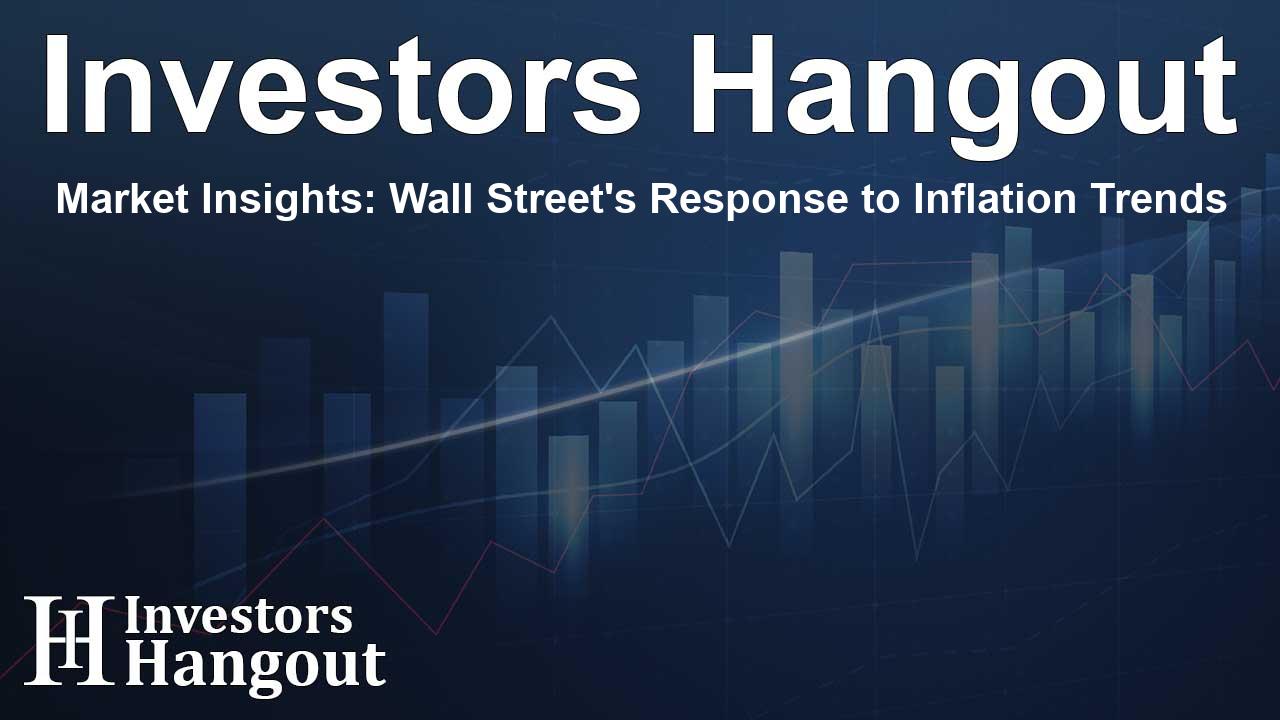Market Insights: Wall Street's Response to Inflation Trends

Wall Street's Insight on Recent Inflation Trends
Wall Street analysts are closely analyzing the latest inflation data from the United States, recognizing its significant implications for future decisions by the Federal Reserve and overall market sentiment. This growing attention emphasizes the connection between inflation rates and economic policies, shaping how investors approach their strategies.
Current Inflation Rates: An Overview
Recently reported consumer prices show a 2.5% increase over the past year, reflecting a cooling trend in inflation that many observers will welcome. This marks the slowest growth since February 2021, demonstrating a decrease from July's rate of 2.9%. Such figures have prompted discussions among analysts regarding the likely direction of monetary policy.
Expert Opinions on Inflation Data
Vital Knowledge analysts have noted that despite the inflation report’s implications for interest rates, it is not expected to drastically alter the Federal Reserve's approach. They suggested that even a smaller cut may enjoy a dovish tone in accompanying statements, possibly indicating a more cautious view on future monetary policy.
Housing Concerns and Economic Outlook
Capital Economics pointed out that while current inflation rates suggest a level of control, persistent increases in housing costs could disrupt the Fed’s plans. They advocate for a more measured approach with any potential rate decreases reflecting ongoing inflationary pressures.
Reactions from Major Financial Institutions
Organizations like Oppenheimer have also weighed in on inflation's significant components, specifically food prices. They highlighted a slight decline in food-at-home inflation, while maintaining a critical stance toward the general inflation landscape. This dynamic demonstrates the mixed signals impacting the retail sector.
Projected Rate Cuts and Market Implications
Citi analysts predicted that the latest inflation data might prompt the Fed to consider a 25 basis-point cut as opposed to a more aggressive 50 basis-point cut. Such decisions are reflective of core inflation trends, suggesting an outlook for continued adjustments into the latter part of the year.
Summary of the Inflation Discussion
The forecast from Morgan Stanley echoed similar sentiments, supporting the 25 basis-point cut forecast while addressing a less aggressive situation going forward. In their analysis, they implied that even with some surprising inflation numbers in specific sectors, the broader environment calls for caution in implementing drastic monetary changes.
Future Trends in Inflation and Interest Rates
Evercore ISI characterized the latest Consumer Price Index (CPI) report as notably high, largely due to surges in rents and transportation costs, yet they noted a general cooling trend. They anticipate that while Treasury yields may increase in the short term, long-term strategies should still align with optimism toward lower inflation rates.
Conclusively, although the released inflation figures have sparked considerable discussion, many analysts predict the Fed’s response will favor smaller rate cuts. This ongoing dialogue reflects the balance of caution and optimism as stakeholders navigate the complexities of economic recovery and monetary policy adjustments.
Frequently Asked Questions
What is the current inflation rate in the US?
The current consumer price index indicates an inflation rate of 2.5% over the last year, marking a decrease from previous months.
How might the Fed respond to recent inflation data?
Most analysts anticipate the Federal Reserve may opt for a smaller rate cut of 25 basis points in light of the latest inflation trends.
What factors are influencing inflation rates currently?
Housing costs and food prices are significant components impacting the overall inflation landscape, contributing to the current economic discussions.
What do analysts predict for future rate cuts?
Many financial institutions foresee continued rate cuts into the latter parts of the year as inflation remains a central focus of monetary policy considerations.
How does inflation affect consumer spending?
Higher inflation rates can lead to a decrease in purchasing power for consumers, which may influence spending habits and overall economic activity.
About The Author
Contact Dominic Sanders privately here. Or send an email with ATTN: Dominic Sanders as the subject to contact@investorshangout.com.
About Investors Hangout
Investors Hangout is a leading online stock forum for financial discussion and learning, offering a wide range of free tools and resources. It draws in traders of all levels, who exchange market knowledge, investigate trading tactics, and keep an eye on industry developments in real time. Featuring financial articles, stock message boards, quotes, charts, company profiles, and live news updates. Through cooperative learning and a wealth of informational resources, it helps users from novices creating their first portfolios to experts honing their techniques. Join Investors Hangout today: https://investorshangout.com/
The content of this article is based on factual, publicly available information and does not represent legal, financial, or investment advice. Investors Hangout does not offer financial advice, and the author is not a licensed financial advisor. Consult a qualified advisor before making any financial or investment decisions based on this article. This article should not be considered advice to purchase, sell, or hold any securities or other investments. If any of the material provided here is inaccurate, please contact us for corrections.
